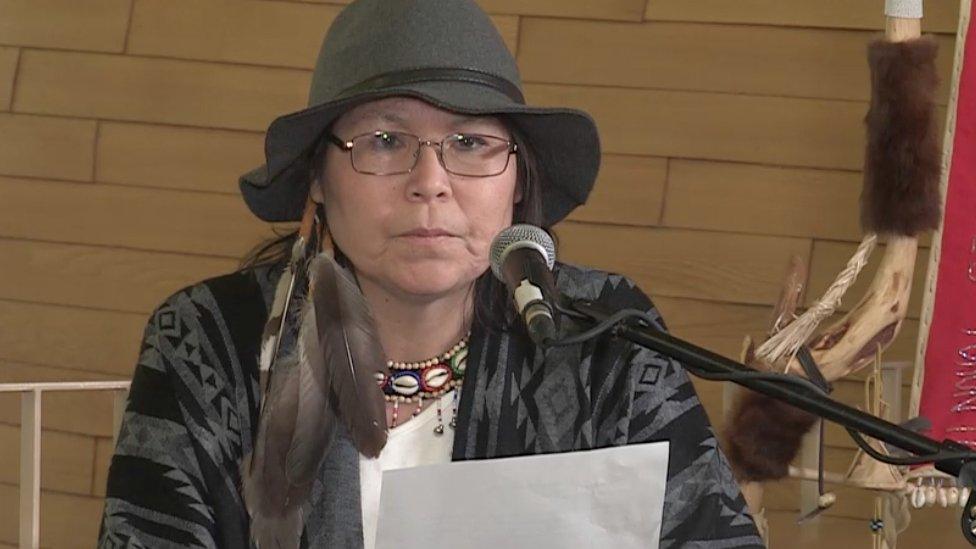Dark Cloud: 'Sixties Scoop' survivor
- Published
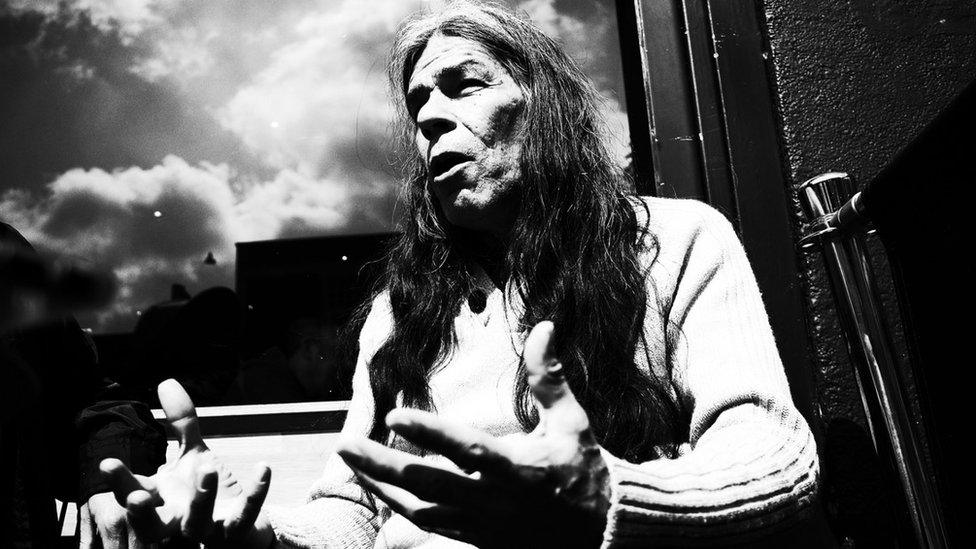
Dark Cloud hopes to raise awareness of the Sixties Scoop by telling his story at talks and film screenings
"I was one of the lucky ones that got away, but they now call me a split feather."
Dark Cloud, now aged 53, is the only Native American living Bristol, England.
He sat across from me outside of a café in Bristol smoking roll ups with a very humble demeanour waiting to tell me about his life.
He was one of the many indigenous children in Canada who were forcibly separated from their families between the 1950s and 1980s in what was known as the 'Sixties Scoop' to try and assimilate them into mainstream culture.
He hopes by sharing his story he will be able to keep his tribe's name alive, connect with others who shared the same experience and deepen understanding of this period in history.
"My British family that lived in Canada came into the adoption agency in Canada and found me in a closet, naked and dirty and fostered me," he said.
"I was taken along with my two sisters when I was two and the Canadian government separated us into different adoption centres 500 miles away from my reserve.
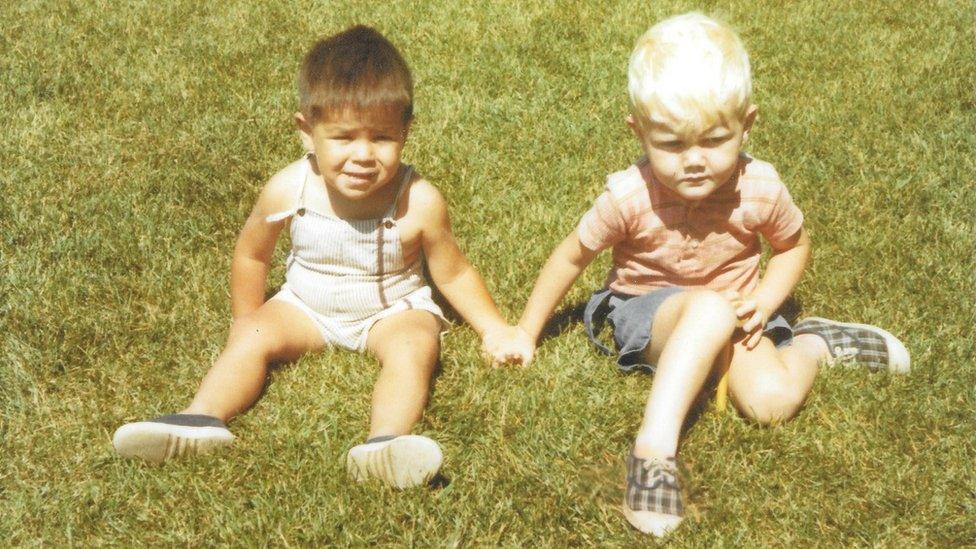
Dark Cloud grew up with other children who had also been adopted by his parents
"One of my sisters was adopted and died in a house fire and my other sister was adopted but is on the run, so no-one knows where she is.
"I used to make things up about my birth family and say they had died in a car crash until I learned about the truth.
"My blood mother had me at 19 and was an alcoholic and I became an alcoholic at that age as well and to know that was a horrible feeling."
Aged 19, Dark Cloud ran away and hitchhiked across Europe for 12 years living on the streets.
He settled in the West of England where he was able to tackle his alcoholism.
Once he became sober he travelled to back to Canada in 2018 using his life savings to connect with his roots for the first time.
"I was ready," he said.
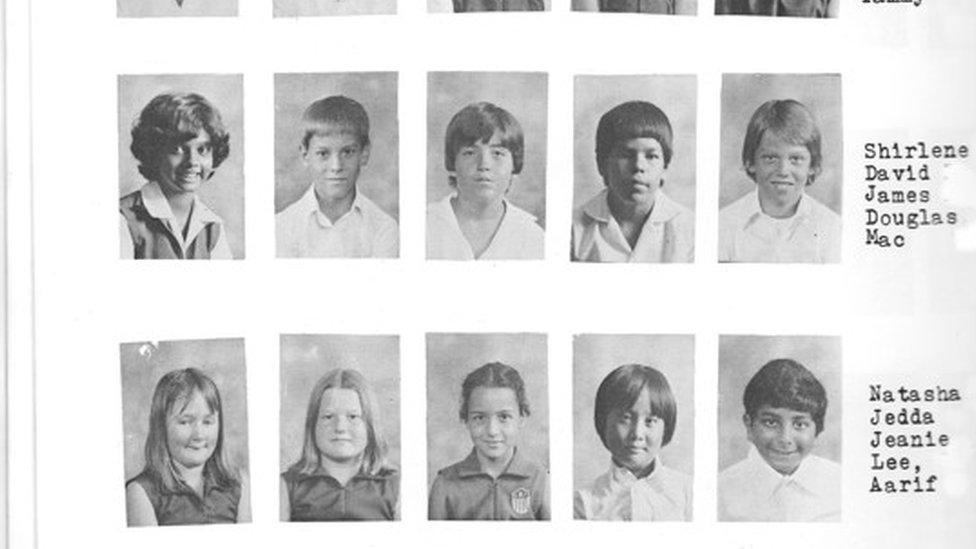
His British parents named him Douglas when he was a child
"All of my life I have been stereotyped, people say, 'Oh you're first nation, you must be spiritual or can you teach me something?', but actually I had a really bad life and haven't always known the traditional ways," he said.
During his trip to Canada he visited the Ojibwe tribe where he is from.
"When I arrived I was called a split feather, meaning I'm Indian on the outside but not the inside because I never lived the traditional way.
"I went there with a lot of hope and a feeling that I'm going to settle down and live with my people again but in fact the first nation people resented me because I was one of the lucky ones that got away from the reserves."
Despite this initial resentment, he said they treated him like family, took him in and shared their culture, creating what he described as a "bittersweet" bond.
He was also taught about the traditional ways and was given sacred items to be used ceremoniously.
An eagle feather, a blessed drum, a smoking pipe, a rattle, braided sweet grass, sage, cedar and tobacco to be used for smudging and a turquoise stone.
He has kept the items ever since and uses them to show others what native American traditions are.
Dark Cloud handed me some of the items and described how each one was to be used in a ceremony but said: "You're not allowed to touch the feather. No one is."
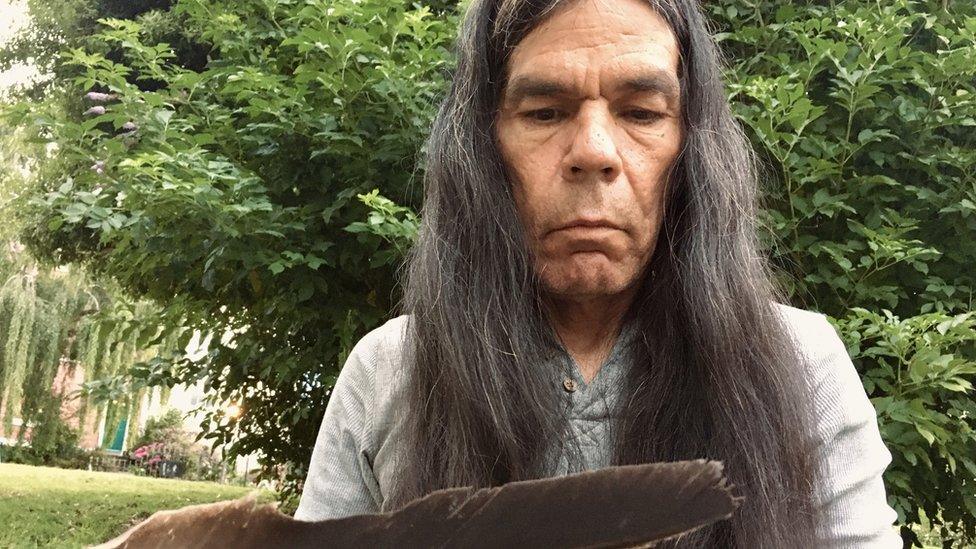
He now resides in Bristol where he will be delivering talks later this year
Although Dark Cloud faced his own difficulties, he said he was still regarded as "one of the lucky ones" by the Ojibwe tribe because he had escaped "the horror and the racism that they have had to deal with since the 1960s".
In June, 751 unmarked graves were found at the site of a former residential school in Saskatchewan, Canada, another dark legacy of the Sixties Scoop.
"When I heard about the graves found in Canada I thought, finally it's coming out, and it's about time Canada owned up to what they have done to our people," he said.
Canada has been involved in years of litigation over the practice that has resulted in financial reparations.
The Canadian government has said it has invested CA$50m (about £36m) to bring a "meaningful resolution" to the "painful legacy" of the Sixties Scoop through its Sixties Scoop Healing Foundation.
The foundation would "support healing, wellness, education, language, culture and commemoration activities to support all Indigenous peoples affected by the Sixties Scoop" and would be guided by those who survived, the government spokesperson added.
But Dark Cloud believes more action is needed.
"For what has happened to my people, an apology is only words and giving us money is insulting.
"For me justice would be the Canadian government getting schools to teach about what happened so that the next generation knows."
From October Dark Cloud is holding a series of talks at The Future Leap in Bristol and at screenings of the film Dark Cloud, 60s Scoop Survivor, external made by university students.
It will then be shown across universities in Europe.
"For me it's not about the politics, I just want to use my time now to heal, raise awareness about my story and tell people about the traditions of my people," he added.

Follow BBC West on Facebook, external, Twitter, external and Instagram, external. Send your story ideas to: bristol@bbc.co.uk , external
Related topics
- Published16 July 2021
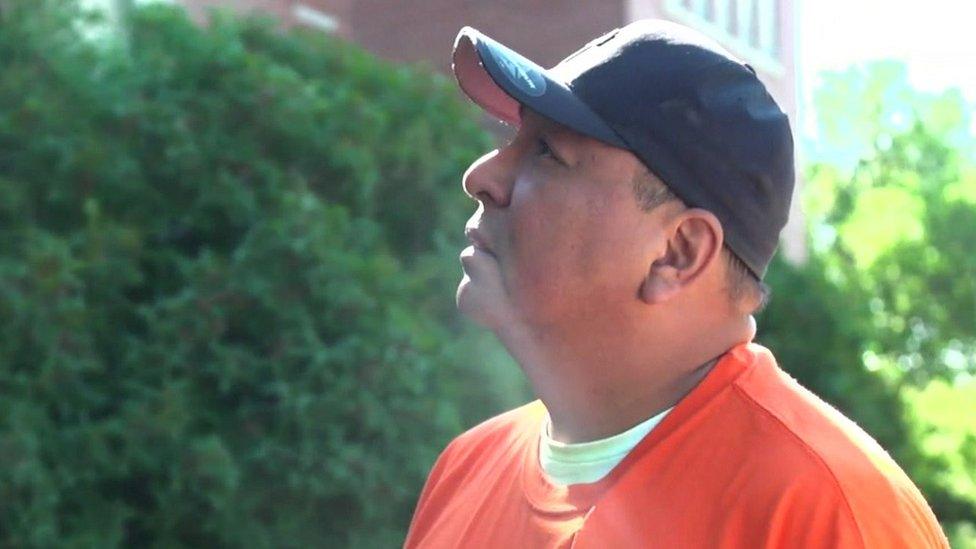
- Published11 July 2021
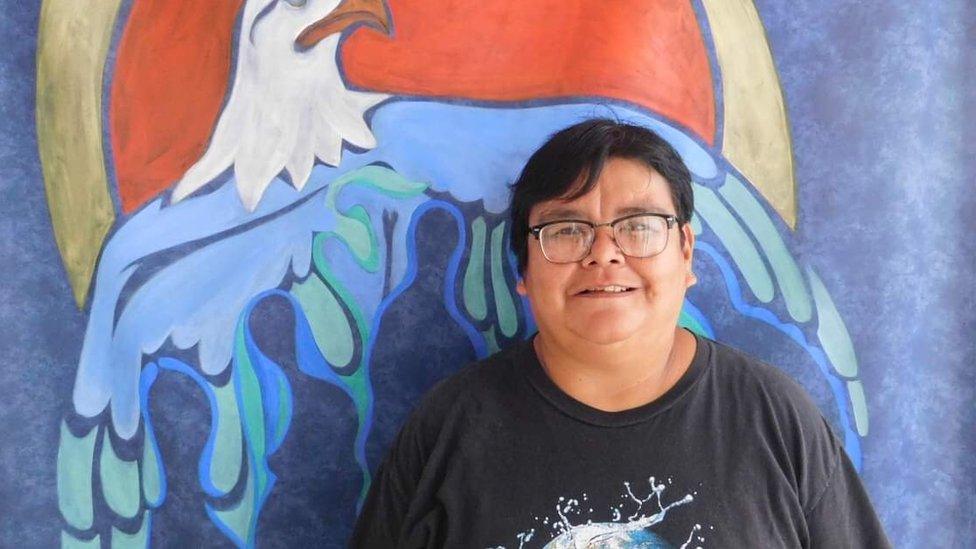
- Published24 January 2021
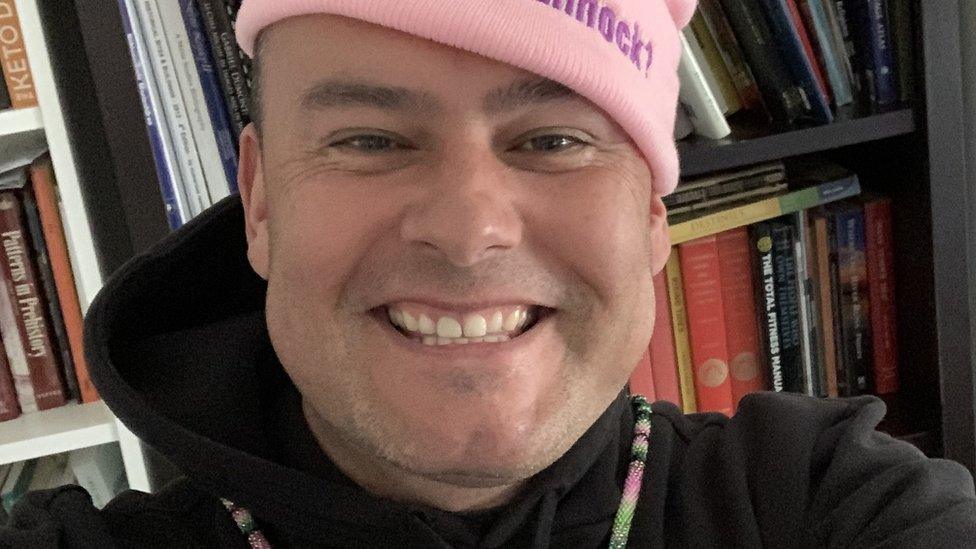
- Published14 February 2017
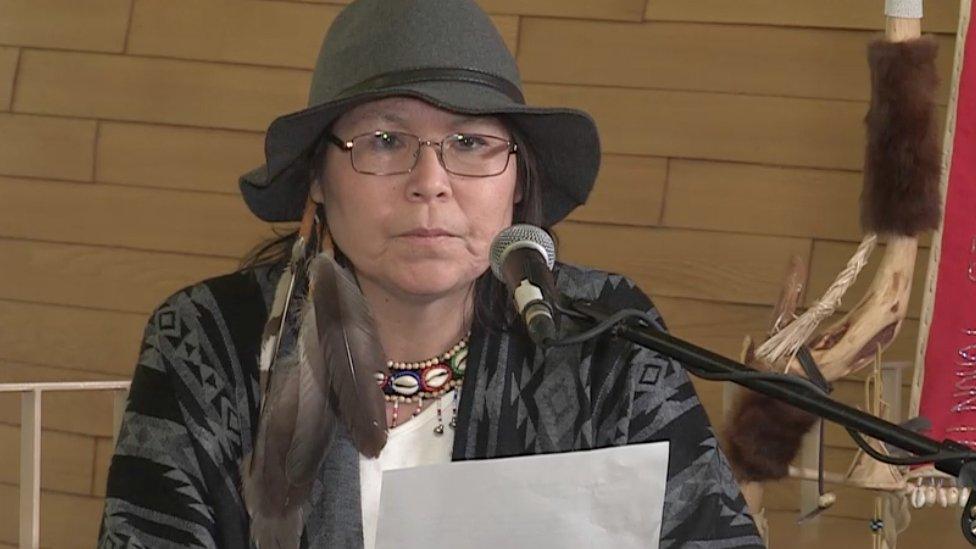
- Published6 October 2017
